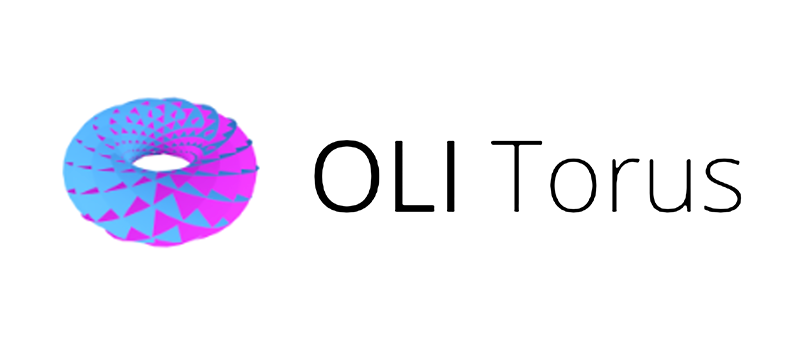See Torus in action
Request a Torus demo, an account, or join the Torus Community
Torus News: v.24, Torus’s largest update, includes features to help instructors and students onboard more smoothly, control the course content and settings, and gain insights through data reports

OLI Torus users now have access to a host of new features around onboarding, course management, reporting, and lots more, in v.24.
Introducing Torus, OLI’s next-generation platform for course authoring, delivery, and research
Torus is the latest iteration of the OLI platform, updating and expanding capabilities for developing, delivering, and improving adaptive courseware while providing a workbench for learning science research. Launched in 2020, the effort is informed by a number of goals.
LEARN MOREFoundational to the project is OLI’s need to replace its legacy system; while the platform has effectively served OLI since its first use in 2006, it has become increasingly restrictive. Torus development was launched as an open effort, reflecting OLI’s open philosophy and also as an attempt to build trust among users who had suffered from prior vendor lock-in and to invite broader participation. Torus has also been architected to be pedagogically agnostic. OLI’s scientific agenda demands humility and an acknowledgment of how much is still unknown about human learning, creating clear requirements for Torus to support alternate approaches, particularly as they can be implemented for fresh investigations. Finally, the new platform is informed by a number of technical requirements, balancing lessons learned with the need to build a robust, cloud-native codebase that can be effectively developed and maintained by a relatively small development team. The Torus technical stack was carefully selected with these requirements in mind. These initial requirements have already drawn exceptional interest from industry and academy collaborators; Torus has quickly grown into an open-source, community-based project with the promise of an even larger community.
Early, enthusiastic participation from Arizona State University’s Education Through Exploration Center (ETX)2 has accelerated progress towards a broader, open-source community with a shared commitment to science-based courseware. ETX is a leading developer of highly immersive, adaptive courseware, with millions of dollars invested to develop materials on the Smart Sparrow platform, and commitments for additional development from a variety of grants (e.g., Horodyskyj et al., 2018; Mead et al., 2019). Pearson’s 2020 acquisition of Smart Sparrow left ETX’s prior work and future commitments at risk. The Inspark Teaching Network,3 closely aligned with ETX, faced the same challenges. To address this risk, ETX became a key partner in the Torus community, recapitulating Smart Sparrow capabilities and migrating existing content to the new platform. At the close of 2022, ETX is central to the now-shared Torus effort, with all its content (and Inspark’s) being delivered on an open Torus platform that provides feature parity with the now-defunct Smart Sparrow platform. Additional users and contributors include the State University of New York (SUNY) system, KTH Royal Technical Institute of Stockholm, Unicon, and WyeWorks. This growing community boasts an array of post-secondary and industry participants that have jointly invested $8.3 million in the platform.
In its current form, the Torus project demonstrates the viability of both the platform and the larger community-based approach. Over the past year, Torus has received open code contributions from more than 8 universities and companies; during that time, the platform has served 35,000 enrollments via 380 educators on 90 campuses. The platform has also seen expansive use in supporting independent enrollments and experiments. New and migrated content is being used by OLI for thousands of students, in courseware representing many domains. ETX is now developing new courseware on the platform. In the coming year, this use is projected to grow dramatically, with an estimated 110,000 enrollments as development and migration continue. The platform instantiates a three-tier client server architecture, combining a Postgres backend, an Elixir/Phoenix application layer, and an HTML/React/LiveView presentation tier. This technology stack was chosen to accelerate development, scale, leverage cloud-native capabilities, aggressively address accessibility, and drive engagement with a broader open-source community. Torus is built for scale in multiple dimensions and architected to support two-orders-of-magnitude growth from our legacy system. Our priorities in developing Torus have emphasized elements that will expand our user base by targeting historically limiting factors in adoption and contribution. Torus is under active development, with a focus on finalizing migration from the legacy system and a longer-term roadmap with a host of new features and affordances. Torus supports a growing array of analytics, supporting course designers, authors, and students. The authoring environment has already recreated key improvement views from the legacy system, allowing designers to more easily identify areas to be refined (Bier & Jerome, 2012). The system also provides direct connections to DataShop and LearnSphere, expanding analytic capabilities. New features include an audit framework to support detailed pre-release analysis of courseware; existing pedagogical, accessibility, and content audits are already in place and being actively refined, and new equity audit approaches are in development. The platform also addresses the legacy platform’s analytics implementation, which offered a rigid approach that made expansion of and research into learning analytics a challenge (Bier, et al., 2014). Torus is designed to support a modular approach, separating prediction engine, domain and learner models, and visualization components to support a broader set of approaches and investigations.
Torus FAQ



